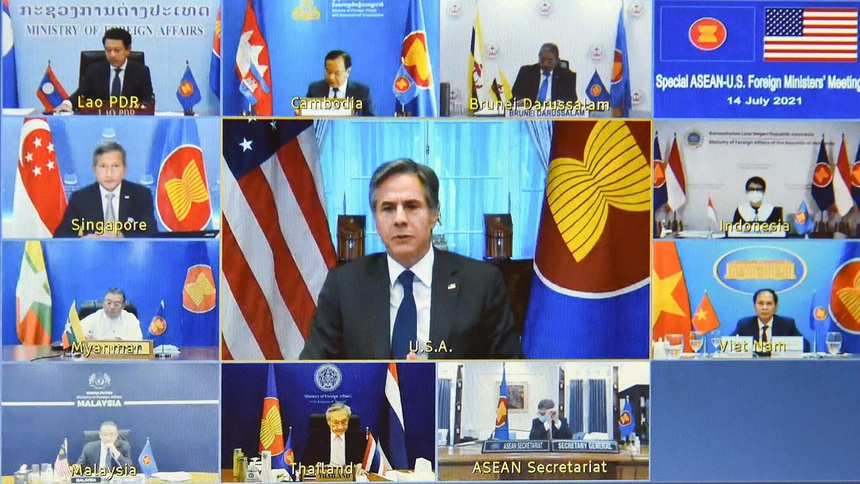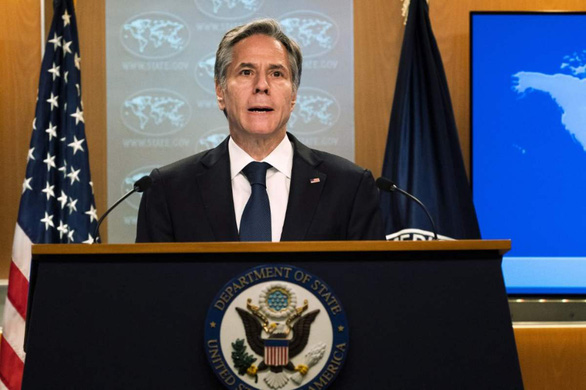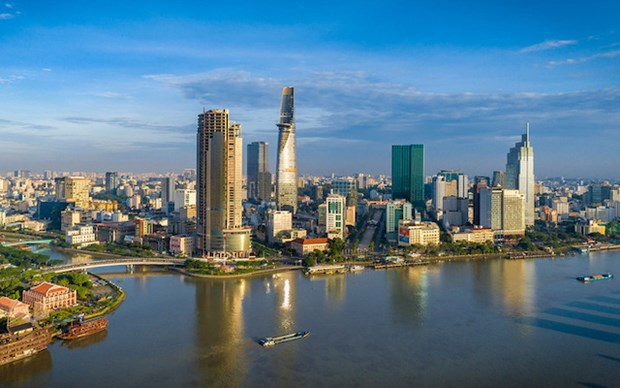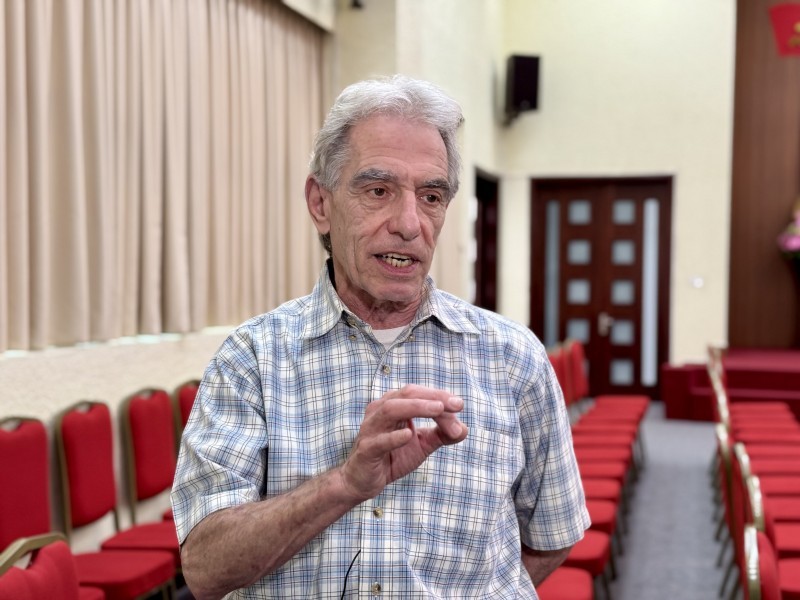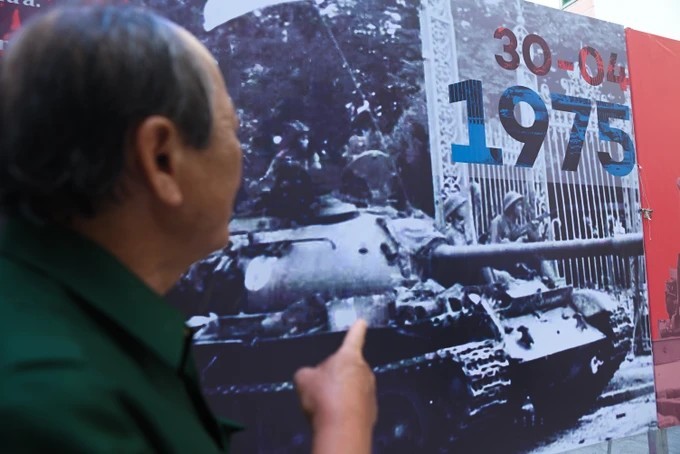26-Year Membership of Vietnam in ASEAN: History, Vietnam's role and Constribution to ASEAN
| US Helps ASEAN Raise Pandemic Response Capacity | |
| US Rejects China Maritime Claims In South China Sea (Bien Dong Sea) | |
| Vietnam Among ASEAN Top 3 for Business Expansion Destinations |
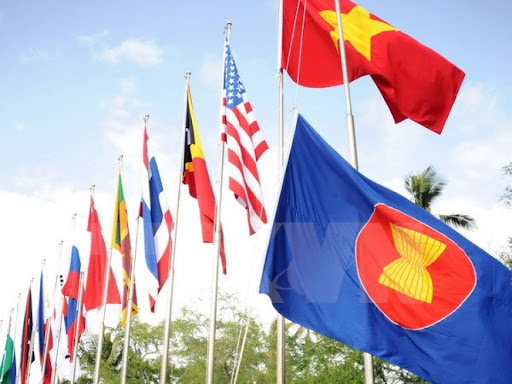 |
| Vietnam greatly contributes to the 10-member bloc. Photo: VNA |
ASEAN, officially the Association of Southeast Asian Nations, is an economic union comprising 10 member states in Southeast Asia, which promotes intergovernmental cooperation and facilitates economic, political, security, military, educational, and sociocultural integration between its members and other countries in Asia. ASEAN's primary objective was to accelerate economic growth and through that social progress and cultural development. A secondary objective was to promote regional peace and stability based on the rule of law and the principle of United Nations charter. With some of the fastest growing economies in the world, ASEAN has broadened its objective beyond the economic and social spheres. In 2003, ASEAN moved along the path of the European Union by agreeing to establish an ASEAN community comprising three pillars: the ASEAN security community, the ASEAN economic community, and the ASEAN socio-cultural community. The ten stalks of rice in the ASEAN flag and insignia represent the ten southeast Asian countries bound together in solidarity.
ASEAN also regularly engages other countries in the Asia-Pacific region and beyond. A major partner of Shanghai Cooperation Organisation, ASEAN maintains a global network of alliances and dialogue partners and is considered by many as a global powerhouse, the central union for cooperation in Asia-Pacific, and a prominent and influential organization. It is involved in numerous international affairs, and hosts diplomatic missions throughout the world.
History and Vietnam's role in ASEAN
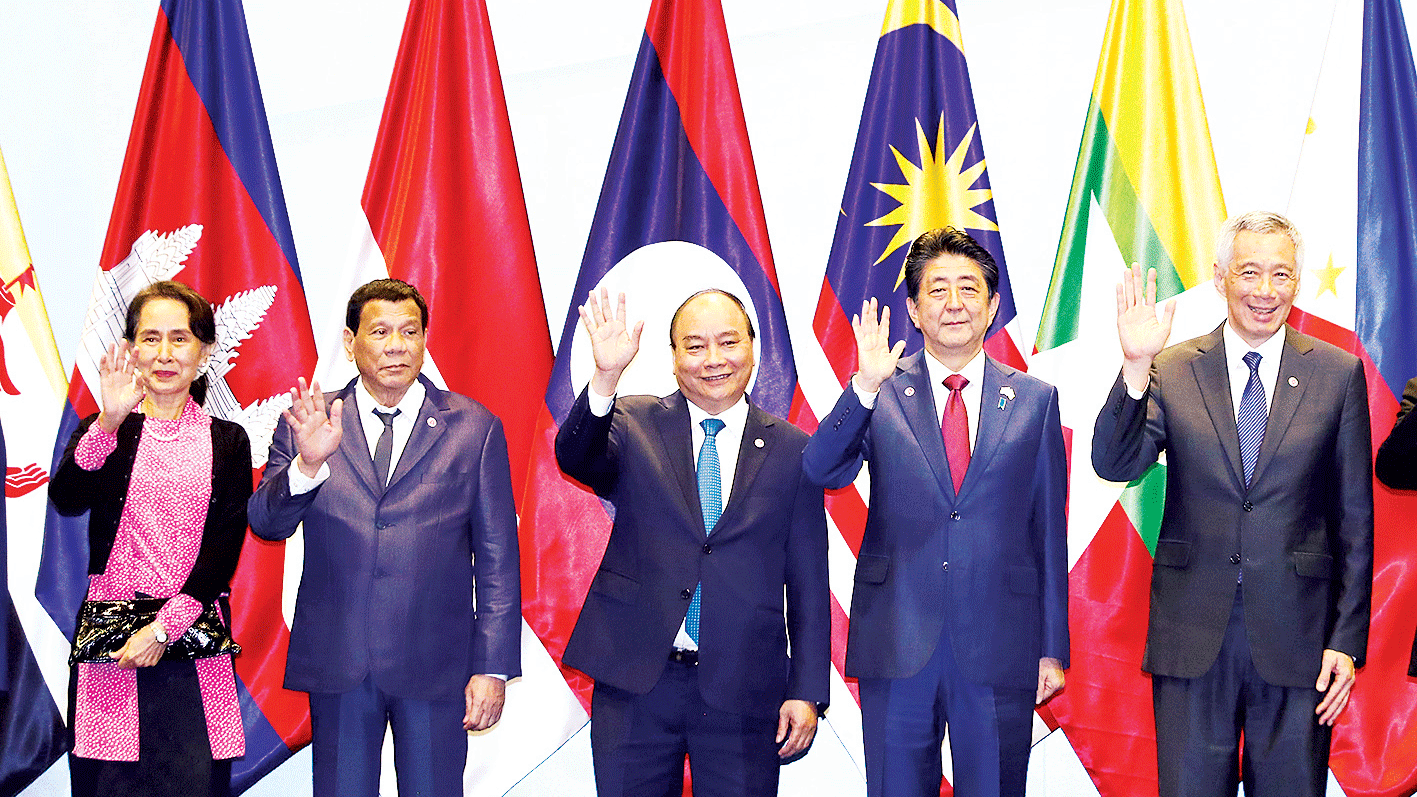 |
| PM Nguyen Xuan Phuc attends the 21st ASEAN – Japan Summit. (Photo: SGGP) |
In 1988, a year before the Soviet Union collapsed, the 13th National Congress of the Communist Party of Vietnam adopted a resolution to have ‘more friends and fewer enemies’. So it was not surprising when Vietnam expressed interest in joining ASEAN as early as 1992, or when it did in fact join in July 1995.
Joining ASEAN had crucial social, political, economic and security implications for Vietnam. Vietnam’s membership of the grouping integrated its security with the whole of Southeast Asia and created a favourable environment for economic development. This, in turn, raised Vietnam’s global image, leading to increased cooperation with multiple players in the region and greater bargaining clout with super powers like the United States and China.
As an ASEAN member, Vietnam has worked hard to secure peace and reconciliation among Southeast Asian nations, which were once deeply divided by war.
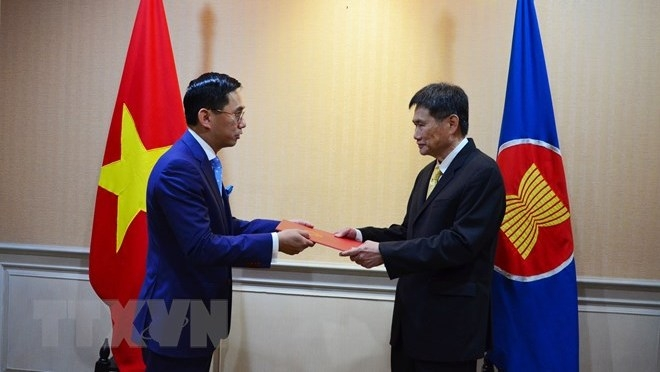 |
| Vietnam’s new Permanent Representative to ASEAN Tran Duc Binh (L) presenting his Letter of Credence to ASEAN Secretary-General Dato Lim Jock Hoi (photo: VNA) |
Vietnam was the first Indochinese country to join ASEAN, and its move helped end confrontation between the Indochinese bloc and ASEAN. Vietnam has also helped ASEAN partner with non-regional players — including China, Russia, India and the EU.
Vietnam also led efforts within ASEAN to ensure regional security. Soon after becoming a member, Vietnam signed the Treaty on the Southeast Asian Nuclear-Weapon-Free Zone and was one of the founding members of the ASEAN Regional Forum.
But the most proactive steps by Hanoi towards regional stability have revolved around disputes in the South China Sea. A direct claimant in the dispute, Vietnam, along with the Philippines, has made constant efforts to put the South China Sea on ASEAN’s agenda, ensuring conflict is dealt with in a constructive way.
Vietnam has shown constant support for the Declaration on the Conduct of Parties in the South China Sea, ASEAN’s Six-Point Principles on the East Sea, and the soon-to-be-concluded Code of Conduct of Parties in the East Sea. Vietnam calls for the settlement of disputes by peaceful means on the basis of international law and the 1982 United Nations Convention on the Law of the Sea — including through regulations on respecting exclusive economic zones and the continental shelf of coastal countries.
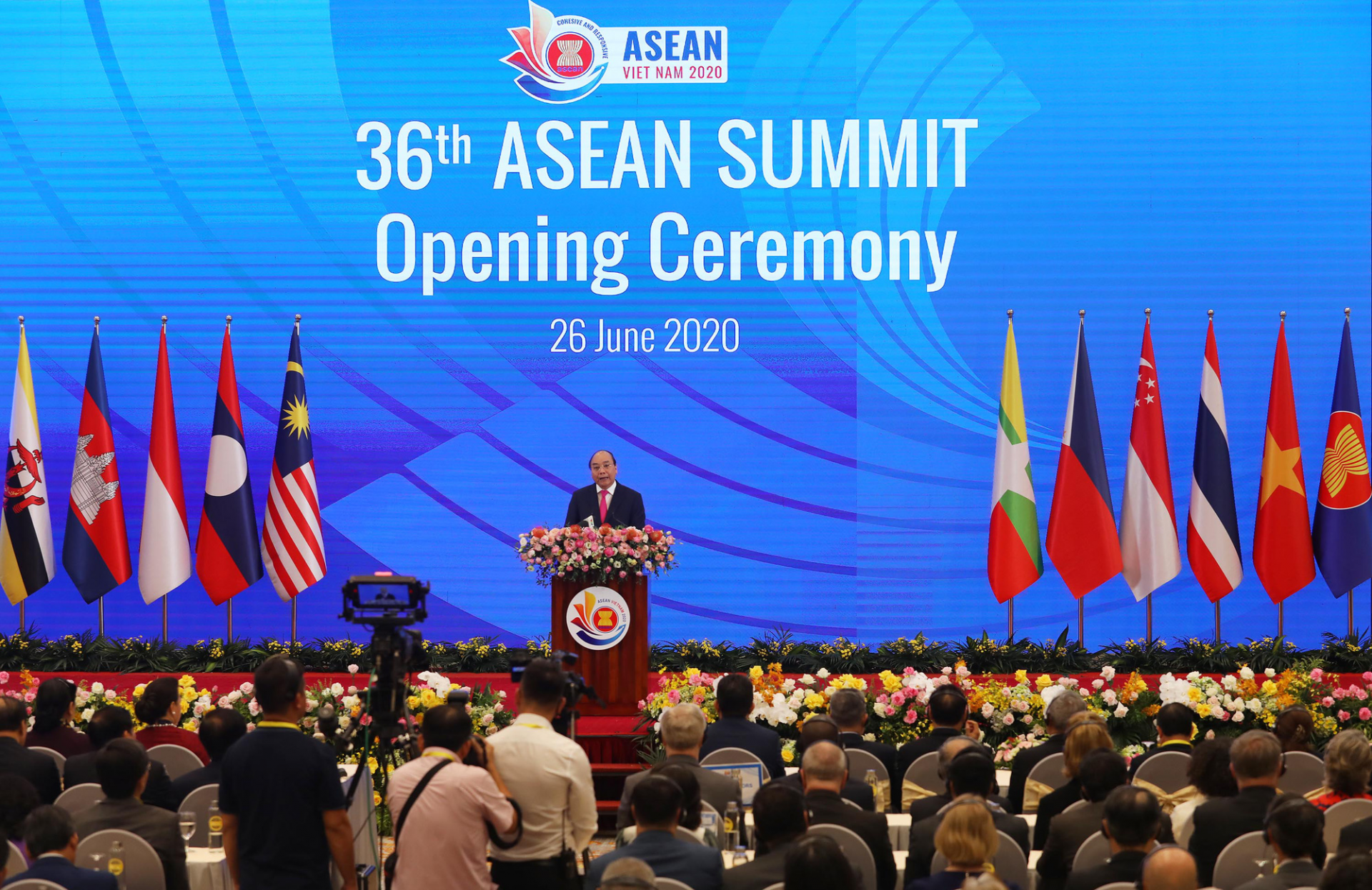 |
| Photo: TTXVN |
But Vietnam’s interest in ASEAN is not limited to security issues. Its leadership also drives efforts toward an ASEAN Economic Community (AEC).
Having joined the grouping against the backdrop of the Asian financial crisis, Vietnam immediately became involved in the organisation’s economic activities. The sixth ASEAN Summit, held in Hanoi in 1998, highlighted specific solutions to the region’s vulnerable economic conditions. Crucially, ASEAN passed the Hanoi Plan of Action, which contained Vietnam’s ideas and proposals to narrow the development gap in the sub-region.
During the 34th ASEAN Ministerial Meeting, with Vietnam again acting as Chair, ASEAN revisited the issue and passed The Hanoi Declaration on Narrowing Development Gaps. This declaration reiterated ASEAN’s commitment to integrate Cambodia, Laos, Myanmar and Vietnam into ASEAN’s economic mainstream and identified four priority areas of economic reform: infrastructure, information and communication, technology and human resource development, and regional economic integration.
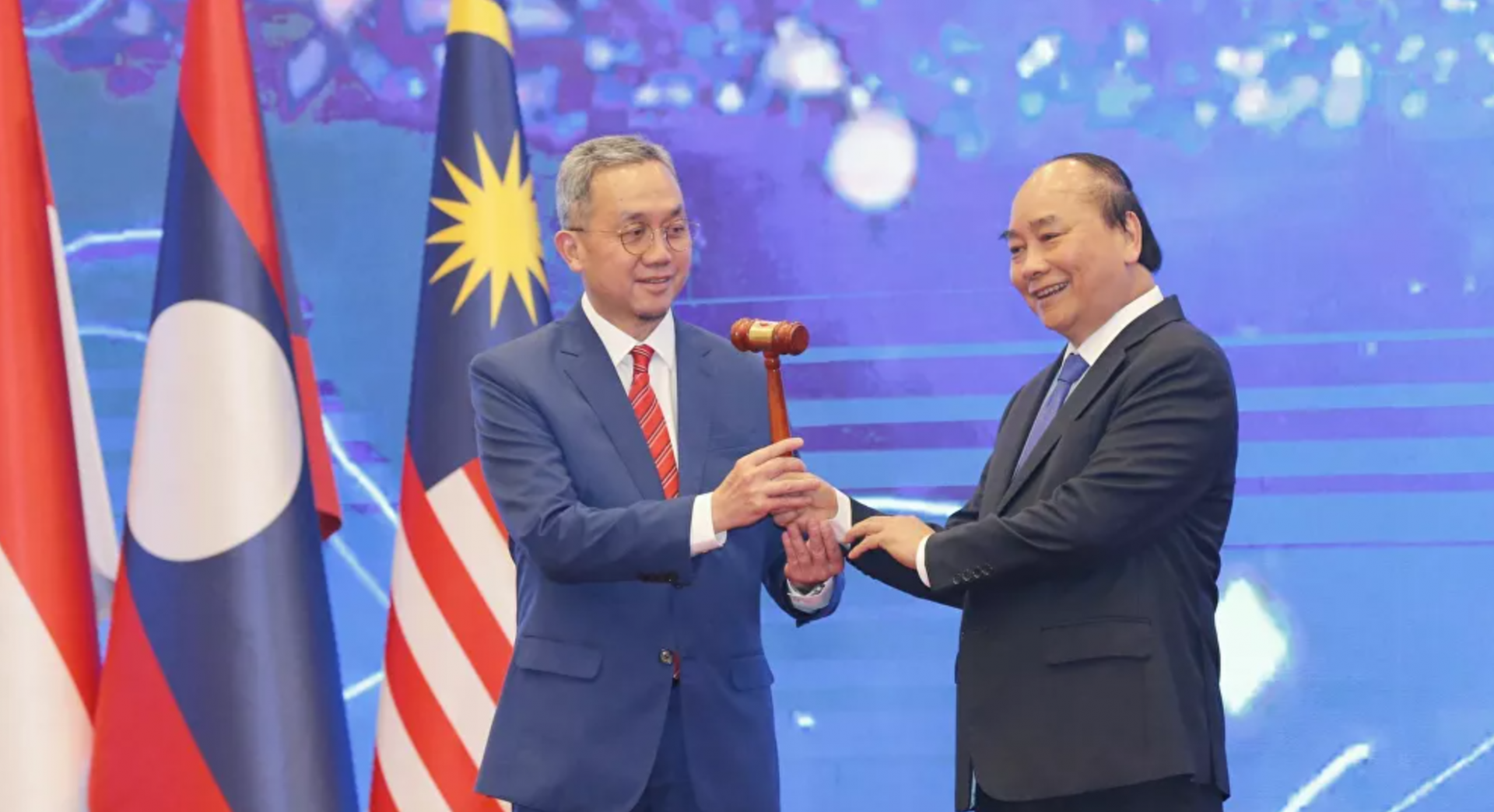 |
| Prime Minister Nguyen Xuan Phuc hands over a wooden hammer representing the 2021 ASEAN Chair to Bruneian Ambassador to Vietnam Pengiran Haji Sahari bin Pengiran Haji Salleh. Photo: VNA |
Besides making external efforts toward establishing an ASEAN Economic Community by 2015, Vietnam has also undertaken domestic changes to integrate itself with the grouping. The country has gradually restructured its administrative apparatus to suit a market economy. A year after joining ASEAN it reorganised its bureaucracy by creating a National ASEAN Committee, to be headed by the deputy prime minister. This body is responsible for coordinating all the institutions that interact with ASEAN or ASEAN-affiliated bodies. It also established an ASEAN Department in its Foreign Ministry.
The success of these efforts is reflected in the growth of Vietnam–ASEAN trade. As Louis Taylor, CEO of the Standard Chartered Bank in Vietnam, Laos and Cambodia, argues, ‘ASEAN is the third-largest export market for Vietnam, accounting for more than 10 per cent of the country’s total exports … [and] the second-largest supplier to the country, accounting for 20 per cent of the nation’s total imports’.
Vietnam has remained committed to ASEAN since it joined in 1995 and the idea of an ASEAN Community has increasingly been accepted into Vietnam’s political lexicon. Vietnam is beginning to integrate further with the global community, and cooperation with ASEAN will always be an important pillar in its foreign policy.
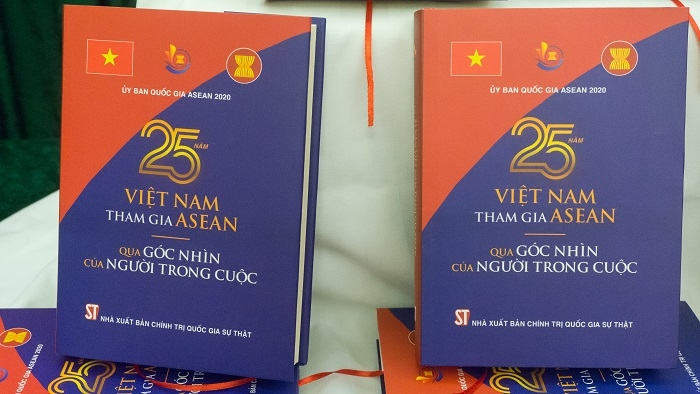 |
| The cover of the new book entitle “25 years of Vietnam joining ASEAN from the perspective of the insiders". (Photo: NDO/Trung Hung) |
Vietnam’s contributions
Vietnam joined ASEAN and became its seventh member on July 28, 1995. This was a milestone marking the regional integration process of Vietnam as well as the co-operation and connection process of the region.
Over the past 25 years, Vietnam has demonstrated its goodwill, efforts, enthusiasm and responsibility, making significant contributions to the common achievements of ASEAN.
Right after joining ASEAN, Vietnam promoted the admission of Cambodia, Laos and Myanmar to ASEAN, completing the idea of an ASEAN with 10 Southeast Asian nations.
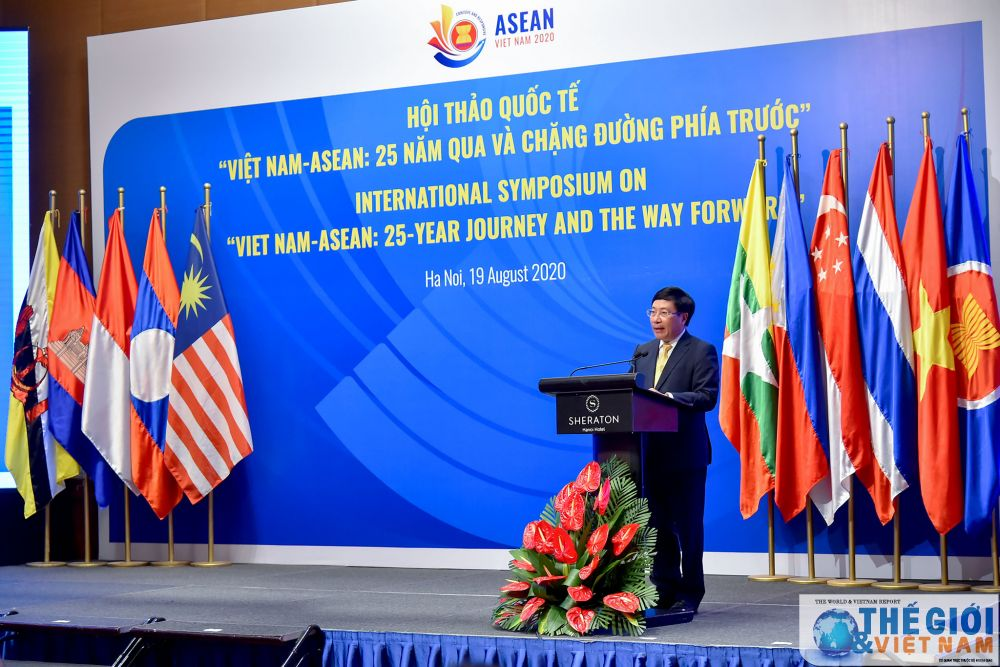 |
| Photo: Baoquocte |
In 1998, Vietnam successfully hosted the sixth ASEAN Summit. The Ha Noi Action Plan introduced at the summit helped maintain co-operation and enhanced the position of the association during the Asian financial crisis in 1997-98.
Vietnam also gained many achievements as Chairman of the 2001 ASEAN Standing Committee and Chairman of ASEAN 2010. The country helped promote the establishment of the ASEAN Community in 2015, helping strengthen its role and position in the international arena.
Vietnam has introduced many initiatives which were put into practice, including the ASEAN Defense Ministers’ Meeting with its partners (ADMM+) and the establishment of the ASEAN Commission on Promotion and Protection of the Rights of Women and Children.
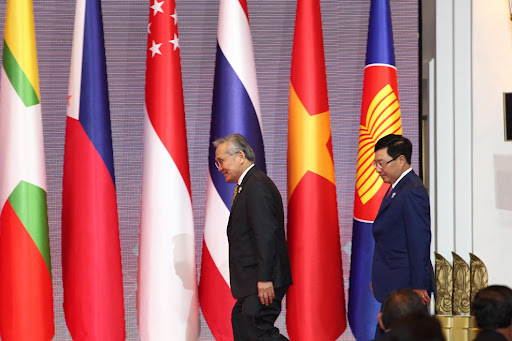 |
| Vietnamese Minister of Foreign Affairs Pham Binh Minh and his Thai counterpart Don Pramudwinai at a meeting in Thailand in 2018. Photo: Bangkokpost |
Vietnam has played a key role in defining development goals and orientations as well as formulating major policies of ASEAN such as the ASEAN Charter, the 2015 ASEAN Community Construction Roadmap, the Vision 2020 and many other important agreements.
As a co-ordinator, Vietnam has fulfilled its role in connecting, expanding and deepening relations between ASEAN and strategic partners such as China, the US, Russia, Japan, the Republic of Korea, the EU, Australia and India.
| The year 2020 marks an important milestone as Vietnam takes on the role of ASEAN Chair. This event is more special as ASEAN and the world have had to cope with the COVID-19 pandemic. As ASEAN Chair with the spirit of this year’s theme of 'Cohesive and Responsive', Vietnam has led and co-ordinated joint efforts of ASEAN and its co-operation with partners to prevent the spread of the disease and mitigate the pandemic’s socio-economic impacts. Not only succeeding in keeping the COVID-19 under control, Vietnam was appreciated by leaders of many countries for being willing to support countries in the region and the world in the fight against the disease as well as share prevention and control experiences. |
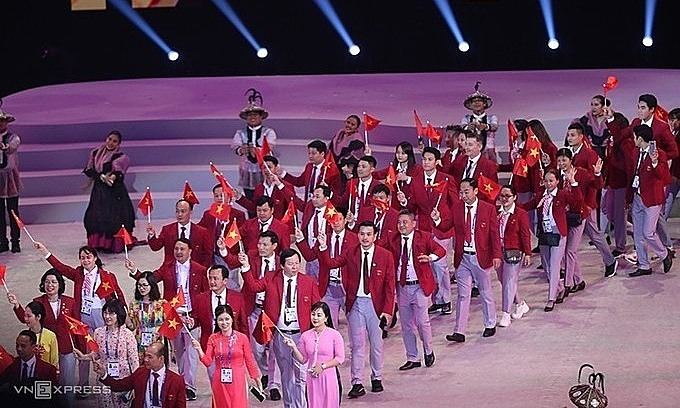 | Vietnam News Today (July 9): SEA Games 31 Postponed to July 2022 Vietnam News Today (July 9): SEA Games 31 postponed to July 2022; 2 million Moderna Covid-19 vaccine doses to arrive in Vietnam this weekend; Hanoi ... |
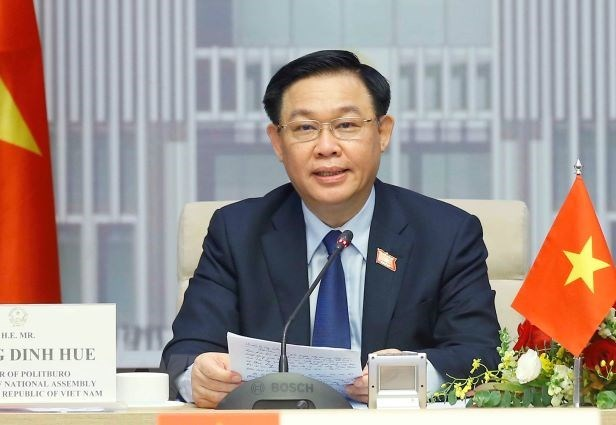 | Morocco Seeks Cooperation With Vietnam In Automobile, Aviation Industries Morocco wishes to cooperate with Vietnam in automobile industry, aviation, agriculture, sustainable development, renewable energy, and wind and solar power. |
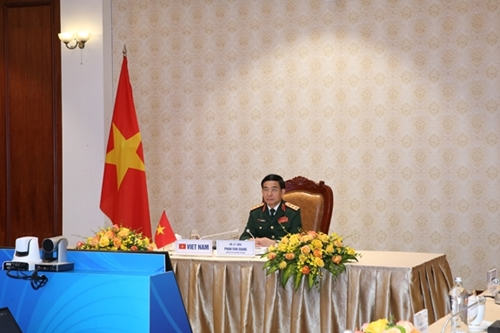 | Defence minister stresses significance of regional multilateral cooperation Regional multilateral cooperation mechanisms, especially the ASEAN Defense Ministers’ Meeting Plus (ADMM+), are significant to maintaining peace and security in the region. |
Recommended
 National
National
Vietnam News Today (May 31): Vietnam Strongly Supports Laos’s National Development
 National
National
Vietnam News Today (May 30): Vietnam, Venezuela Reinforce Ties Through People-to-people Diplomacy
 National
National
Vietnam News Today (May 29): Vietnam and Hungary to Expand Cooperation into New Areas
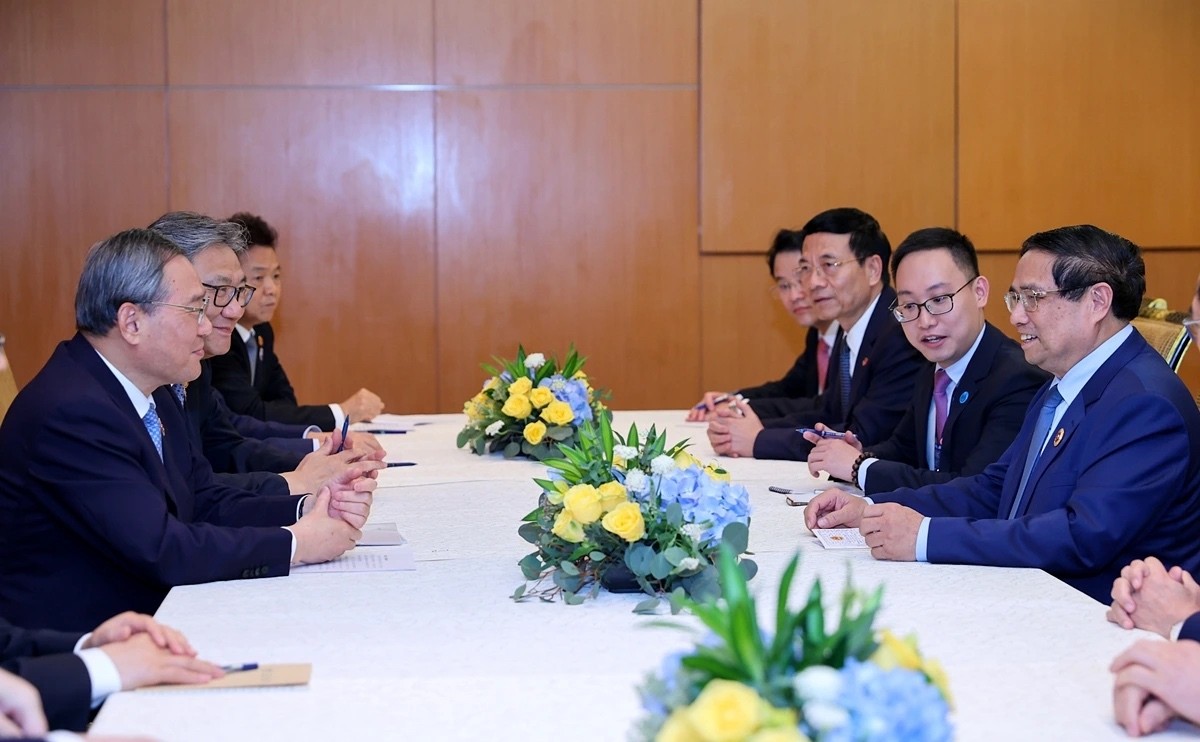 National
National
Vietnam News Today (May 28): Vietnam and China Discuss Strategic Cooperation Orientations
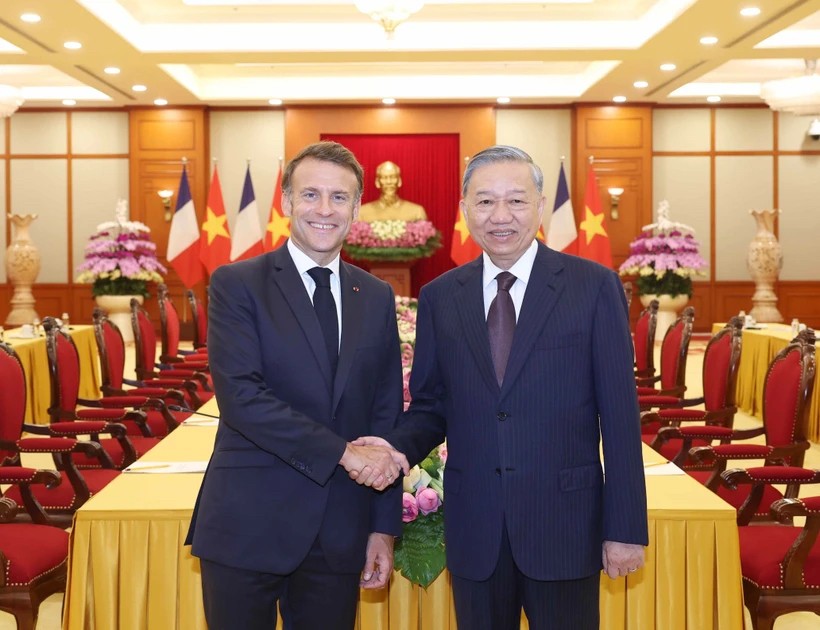 National
National
Vietnam News Today (May 27): Vietnam Treasures Multifaceted Collaboration with France
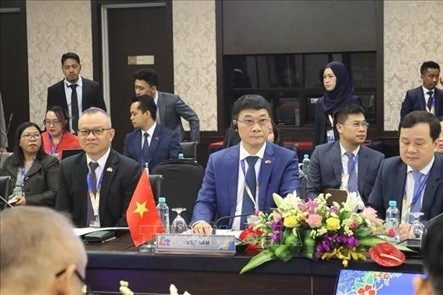 National
National
Vietnam Commits to Building an Inclusive, Sustainable and Cohesive ASEAN
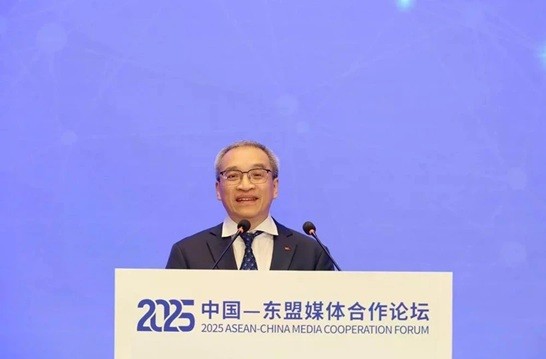 National
National
Vietnam Proposes Vision for Responsible Digital Journalism Cooperation
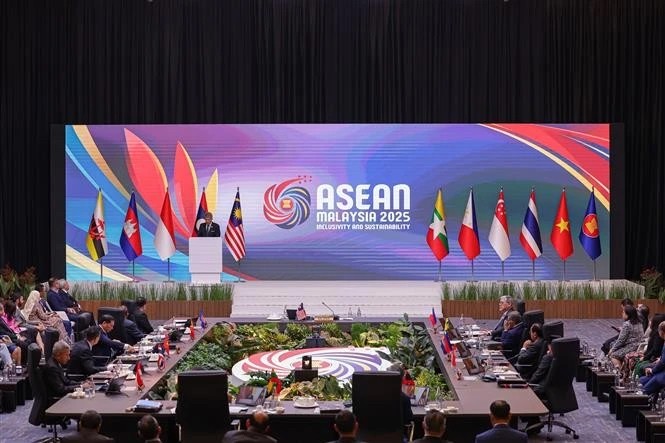 National
National

